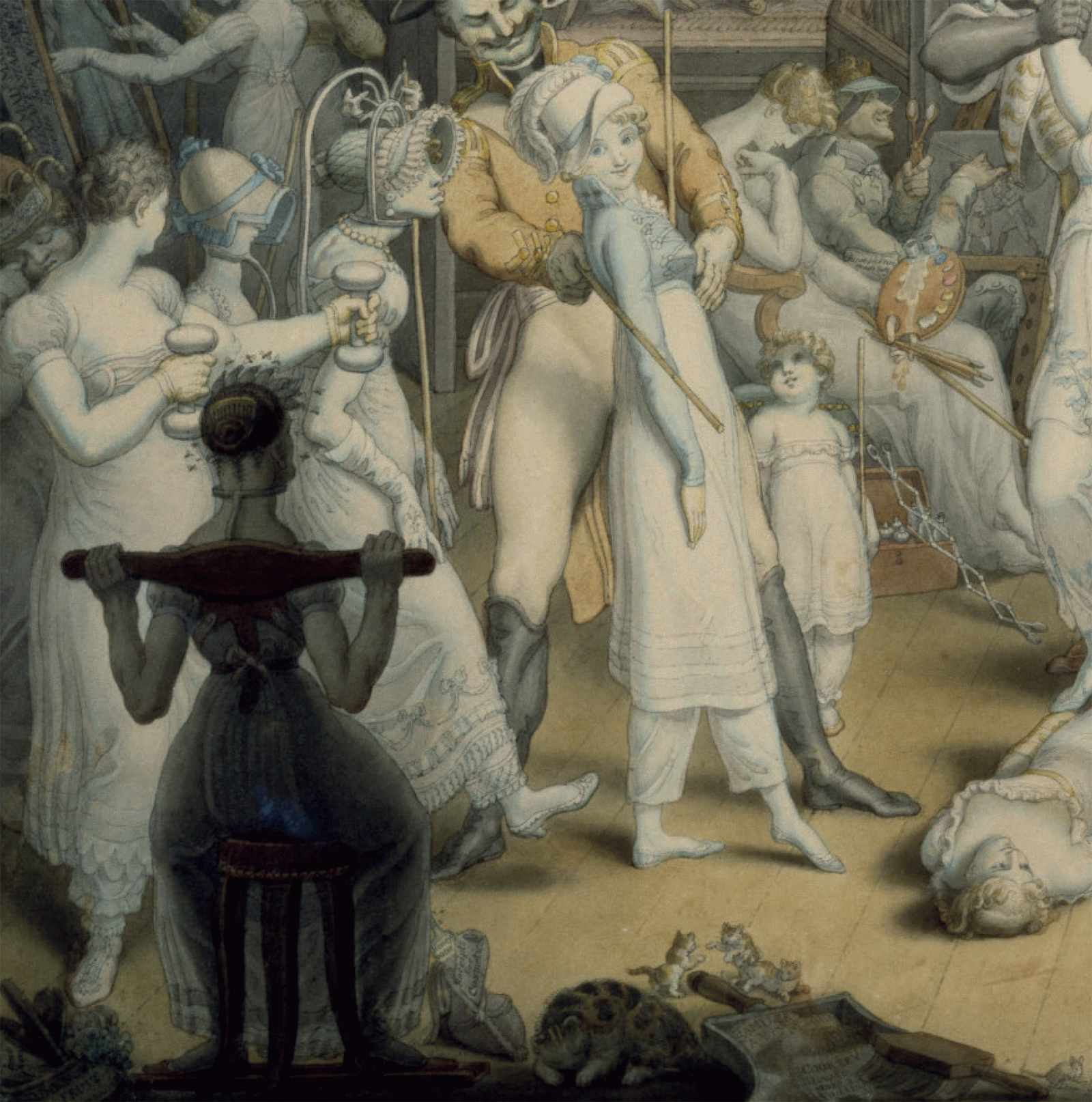Workshop
Made people I: Makeover
Organized by Wolf-Dietrich Löhr (Freie Universität Berlin/Kunsthistorisches Institut in Florenz), Romana Sammern (Universität Salzburg) and Julia Saviello (Ludwig-Maximilians-Universität München)

Since antiquity, beauty has been regarded as a work of art in which nature plays a role not so much as a holistic model and ideal but as a basic substance and an 'assembly kit'. This concept of composite beauty bears the reservation that beauty as an entity only exists in an incomplete form in nature. It suggests that work can be performed on the human body, both to improve and to correct it. The initial hypothesis is that such work represents a concept combining artistic, cosmetic and medical practices that sees the techniques of art in a fundamental field of tension vis-à-vis the substances provided by nature.
Even more than in painting and sculpting, both of which pursued a demonstration of their autonomy and perfection in estheticizing nature in the fifteenth and sixteenth centuries, a supposed inadequacy of what nature had to offer became a lasting point of friction and even the sole legitimisation in the practice of putting on make-up or doing one’s hair and in more recent beauty surgery. While the impression of naturalness remained virulent as a measurement and an ideal, as it also does in art that continuous to pursue imitatio, the boundary to reality simultaneously became permeable, so that beauty could literally assume the role of a second nature and the stylist could turn into an alter deus.
Designed as an interdisciplinary event, the workshop explores the norms and techniques of such an estheticizing treatment of nature in the fields of art, cosmetics and plastic surgery regarding physical beauty and the instruments and guiding principles of its creation or enhancement. In two sessions, it traces the various degrees of cosmetic and artistic treatment of and intervention in the natural body from antiquity to the present, examining its superficial make-up on the one hand and its far-reaching makeover on the other. Here, special attention is given to the techniques of estheticization, the processes of selection and synthesis as well as the modification or modelling of parts of the body with respect to both colours and shapes. Such a focus also allows for a demonstration of the violent side that the ideal of beauty bears which ultimately always entails changes to nature, a dissection of the body into beautiful individual parts and their chimera-like reassembling.
The aim of the workshop is to promote academic exchange between junior scholars and established experts. Also, with the aid of a selection of source texts and a common discussion of selected museum exhibits on site, a common thematic basis is to be developed that covers beautifying techniques of make-up and makeover and reaches beyond individual specialisation.
20 – 21 November 2015
Kunsthistorisches Institut in Florenz - Max-Planck-Institut
Casa Zuccari
Via Gino Capponi 22
50121 Firenze
Notice
This event will be documented photographically and/or recorded on video. Please let us know if you do not agree with the Kunsthistorisches Institut in Florenz using images in which you might be recognizable for event documentation and public relation purposes (e.g. social media).


